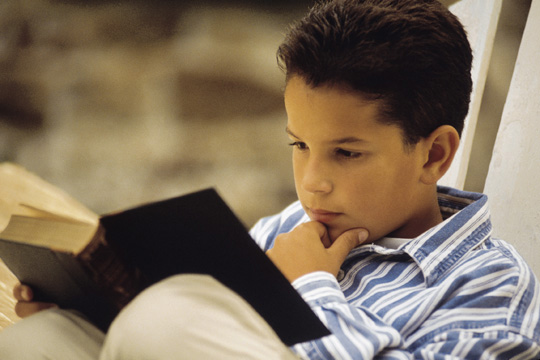 First came the boy wizards, followed by sparkly vampires, tween demigods, and most recently, girl gladiators. Unless you’ve been living under the proverbial rock, chances are you have more than a passing familiarity with some or all of these multi-volume series. And yet, if bookstore shelves and library labels are to be believed, they were not written for you.
First came the boy wizards, followed by sparkly vampires, tween demigods, and most recently, girl gladiators. Unless you’ve been living under the proverbial rock, chances are you have more than a passing familiarity with some or all of these multi-volume series. And yet, if bookstore shelves and library labels are to be believed, they were not written for you.
Why do so many adults read children’s fiction? Fans will be quick to cite the richness and complexity of the Harry Potter series as well as its progressively darker tone. Similarly, Suzanne Collins’ Hunger Games trilogy has been praised for its mature themes and bleak, uncompromising approach to storytelling. But this sort of reasoning only raises another question: if these books are mature and complex enough for adults, why are they marketed as young adult fiction in the first place?
Some have suggested that the books are simply labeled this way due to the age of the protagonists. This is a significant factor, but it doesn’t tell the whole story. For instance, neither Khaled Hosseini’s The Kite Runner nor Eleven by Sandra Cisneros are considered children’s literature. More importantly, it doesn’t explain why YA books have gained more attention and popularity among a large segment of grown-ups than “adult” books. Clearly the label itself is responsible for at least some of the appeal.
First of all, such a label allows the books to target a general audience rather than being classified as genre fiction. Otherwise, Harry Potter would have been banished to the fantasy section along with the likes of Magic Kingdom of Landover or The Belgariad, where its premise of a child with a special gift discovering a magical world would hardly have stood out. Once there, few books escape the genre vortex – even a critically acclaimed series like A Song of Ice and Fire didn’t attract mainstream attention until the TV adaptation aired fifteen years after the first book’s publication.
Aside from that, there is safety in the YA label for both author and audience. A YA book will not be judged as harshly by reviewers, and it allows the adult reader to approach the book with a cute “guilty pleasure” sense of detachment rather than serious critical engagement, as well as the reassurance that neither the language nor the concepts will be too taxing.
The notion that adolescents need to be written down to is a fairly recent one. In the nineteenth century, adventure novels like Kidnapped and Rob Roy were considered young adult fiction, despite being steeped in political history and filled with long-winded philosophical ruminations. Even more recent books that appear on school reading lists such as Lord of the Flies or Flowers for Algernon were in fact written for adult audiences and ended up resonating with younger readers.
As a child growing up in the Soviet Union, Jules Verne and Dumas were considered standard reading fare. I’m sure I didn’t understand more than half of In Search of the Castaways at age six, but I still found it riveting, and in fact it was precisely by reading things I didn’t fully understand that I was able to broaden my mind as well as learn new words and concepts.
This notion seems to be lost on today’s young readers, who expect to immediately grasp everything they read and to be entertained at all times. During my stint as a private tutor, I assigned The Hobbit to my middle school students, all of whom were fairly bright kids. To my dismay, they complained that it was too difficult and too boring; too many long descriptions and narrative digressions. They much preferred Percy Jackson and the Olympians. I read through the first book and found it to be fairly entertaining, but immediately noticed the simple sentence structure, limited vocabulary, and short paragraphs regularly broken up by lines of dialogue. This was a book written to satisfy its readers, not to challenge them.
It would be naive to expect today’s children to only read adult-level books, though there is no inherent reason why they couldn’t comprehend Murakami or Vonnegut. Nor do I begrudge adults their desire to bond with their kids over a book, or just to relax with a simple story. And authors like J.K. Rowling deserve praise for getting so many people interested in reading. But their works should be viewed as a stepping stone or, at best, a complement to more enriching literature, not a replacement for it. The fact that more and more adults are basing their own reading habits on the tastes of their children rather than the other way around is a sign that something is seriously wrong.
